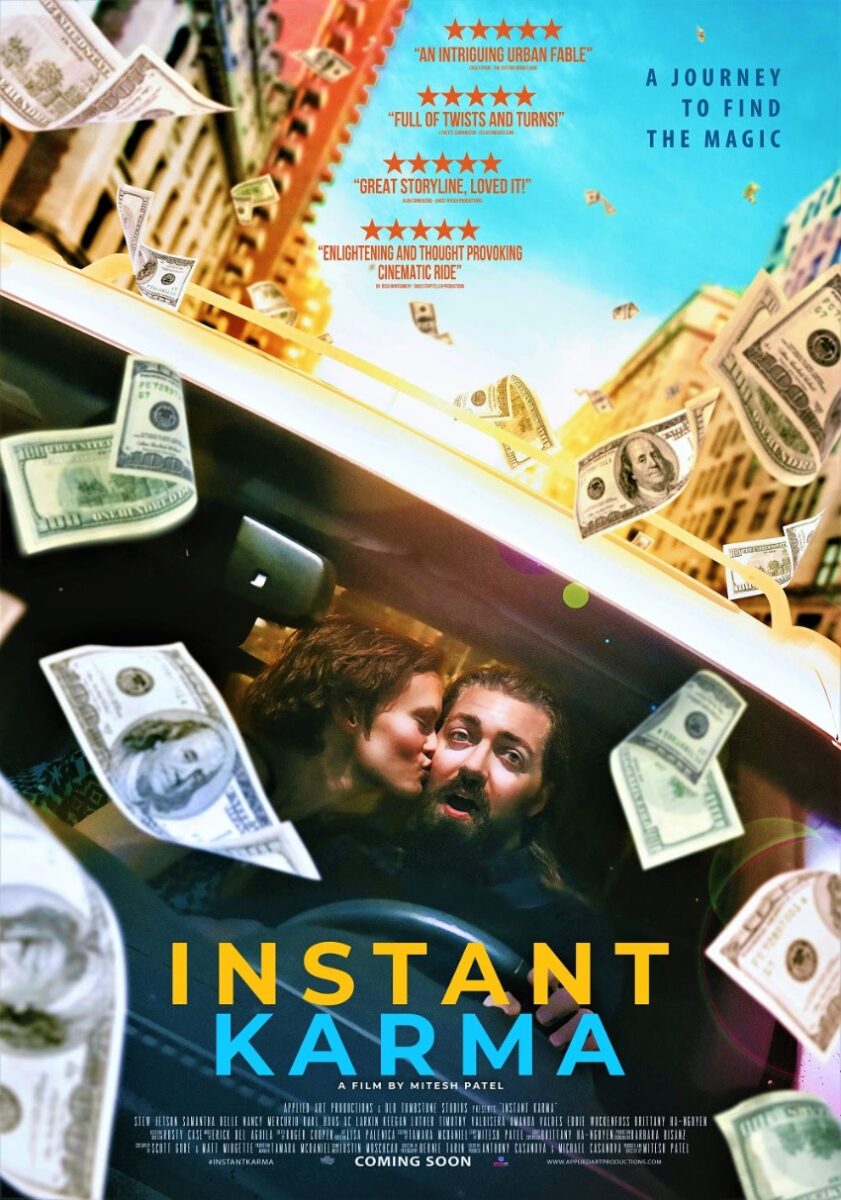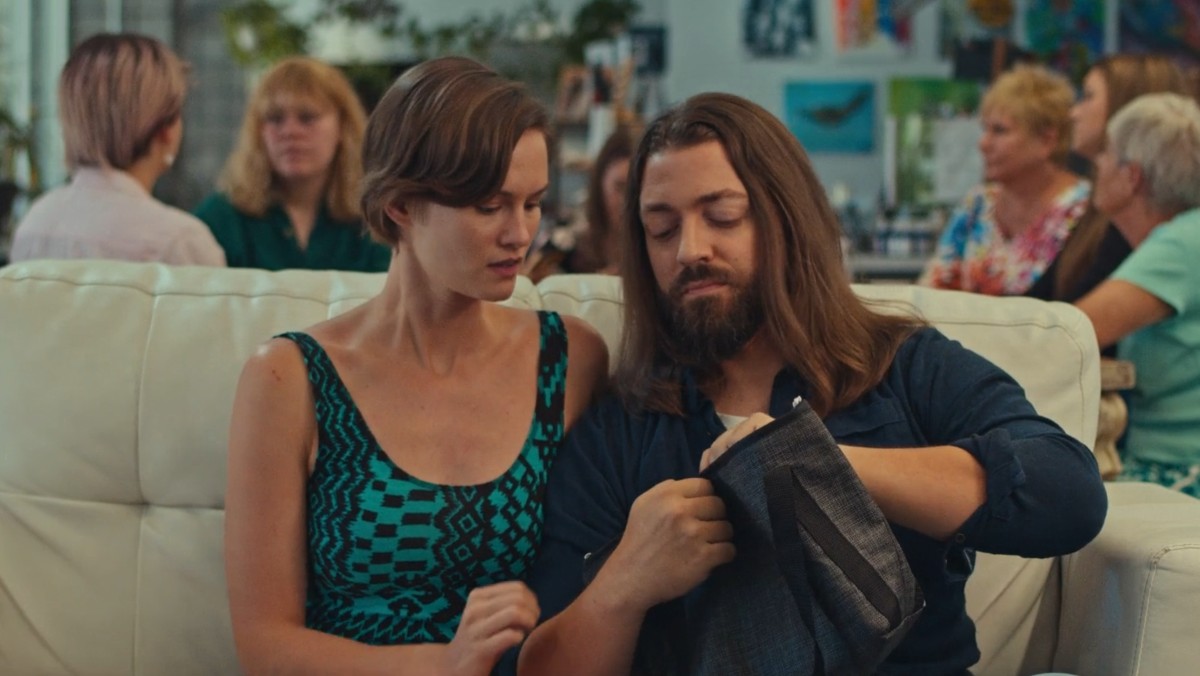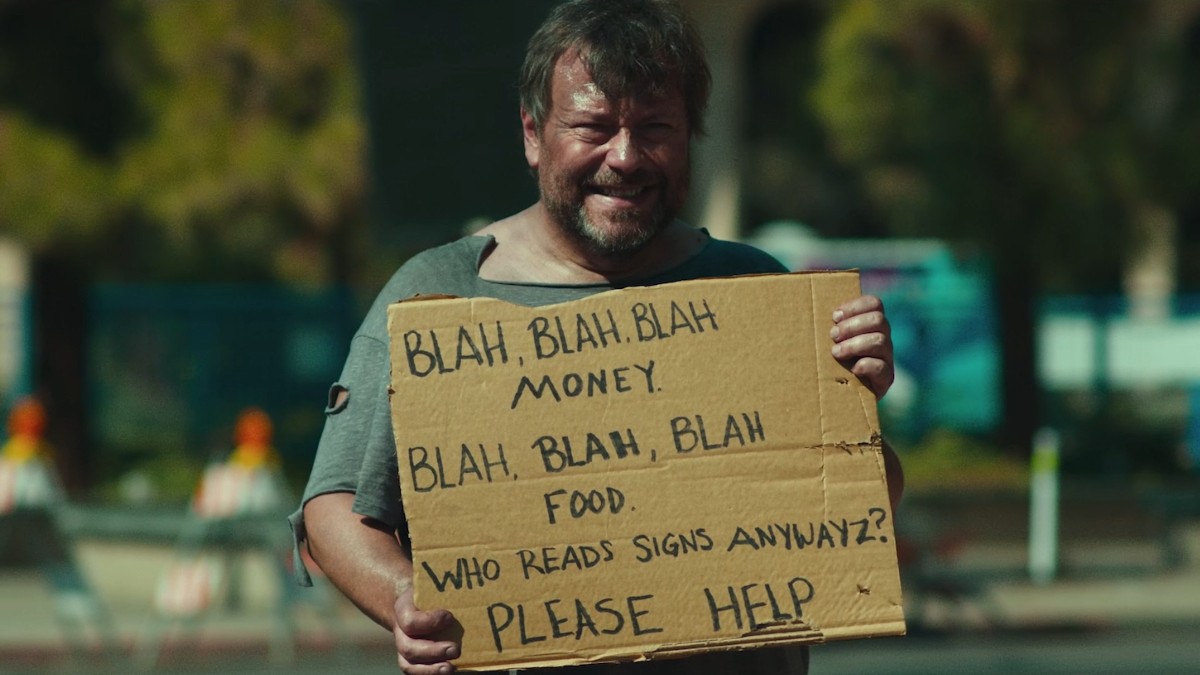
Mitesh Patel studied fine arts in India and started work as a Graphic Designer. After 10 years of turning out world-class designs, Mitesh Patel switched careers and moved into filmmaking or making movies. “I am not solely a director but when I like the concept of a story, I feel the drive to step in and direct the movie to perfection,” says Mitesh Patel.
indieactivity: How do you choose a project to direct?
Mitesh Patel (MP): I look for movies that are unique and tell stories that are creative and original.
Why filmmaking and screenwriting? Why did you get into it?
Mitesh Patel (MP): After being in graphic design for 10 years, I wanted to step up and do something different. One day an idea came to me and I wrote my first script. Once it was completed I realized how badly I wanted to see it be brought to life. It was then that I decided to step into the film industry and continue bringing stories to life.
How can a filmmaker, if she so chooses, distribute her film? How do you get it in front of an audience?
Mitesh Patel (MP): Distribution is a totally different world and the hardest part of the film industry. The best way is to create nice key art, trailers, press kits and submit them to film festivals, and approach all sales and distributors.
Is there anything about the making of the independent film business you still struggle with?
Mitesh Patel (MP): I always enjoy making movies so I don’t feel any struggle.
The Official Trailer for INSTANT KARMA directed by Mitesh Patel
Talk to us about your concept of collaboration?
Mitesh Patel (MP): I choose to collaborate with people who show a real passion for movies as a whole. Movies take a village and I value incorporating new talent and skills into my projects to create the best possible stories.
What uniqueness do female directors/filmmakers bring to film/tv/cinema?
MP: Female filmmakers bring perspectives and views that have long been ignored in the film industry. Their experiences in life help to develop characters and storylines in ways that men might not be able to conceive of.
When you are offered a project, what things do you put in place to deliver a good job?
MP: Filmmaking is my passion and I give 1000 percent of my brain, body, money to make the best film. I look towards the best possible end result of a movie and then I plan exactly how I’m going to achieve that end result. From budgeting to deciphering what time of year to make it, to releasing it, and most importantly finding the best creative, passionate minds to collaborate with.
How do you find the process of filmmaking as an indie filmmaker?
MP: As an indie filmmaker I am willing to step into any part of the production to ensure the success of a film.
Why would you choose an actor, writer, or producer? What do you look for?
MP: Every project is very unique and different, so when I’m looking to hire cast and crew I look for people who can really bring the specific story to life. When looking for actors I seek individuals who not only fit the character best but who are also genuine people that would be fun to collaborate with. My approach is the same for the crew. I look for the crew whose skills fit the needs of the production and individuals who have a passion for creativity and collaboration.
At what period in the filmmaking process, do you need to start planning for distribution?
MP: I look for potential distributors while in the process of pre-production, however, I only start planning for release to distributors after the movie is complete and I am completely satisfied with the final product.

Indie filmmaking is a model of zero or small budget. How do you get a film to the audience with such a budget?
MP: Budget is always a challenge for indie filmmakers. I create concepts that can fit within my budget. Work out deals with my cast and crew and then look for locations that not only work with my numbers but also have the best production value.
How do you think filmmakers can finance their projects?
MP: Invest your own money, look for investors, and then fundraising.
Describe your most recent work, or film, take us through pre, production, and post-production?
MP: The most recent thriller movie is HOUSE OF QUARANTINE. It was a small idea that begged the question of what happens when a group of filmmakers gets stuck in a house during the stressful uncertainty of a virus pandemic. The movie was planned and written in just a month and production took only 8 days just as the country was implementing the first COVID-19 lockdowns. It was sold to Japan just after the production and released in North America in July 2021.
Synopsis: Nine people have been locked down together in a house while trying to make a movie. Unknowingly, one of their group is infected with Covid-19. The next three weeks become a life and death struggle for survival with no help from the outside amidst a global pandemic and national chaos.
Cast: Drew Leatham, Philip P Carlisle, Zoey Walker, Dylan Garcia, Nathan Gayan, Kelcie Weber, King James Chavez, Rachel Grace, Chelsea Nicole Howard
What is your experience working on the story, the screenplay, the production, the premiere, and the marketing?
MP: I have so many unique ideas and making a story is fun. All of my screenplays done by others and working with other writers can be challenging sometimes but we always have a way to make it work. The production requires a lot of planning and I stay on top of everything to ensure it results in the best quality. I am also a salesman and distributor, so I look for better film buyers and distributors to find the right home for the movie. I run the Chandler International Film Festival and that’s helped me to premiere my films and kickstart marketing.

How did you put the crew and cast together? Did you start writing with a known cast? What was your rehearsal process and period?
MP: Mostly all of my crew are from my previous projects. However, If I feel someone is not a right fit for the specific project then I will find another individual who fits better. Mostly all casts were hired from the audience. I don’t write based on a known cast but instead, look for actors after the character they’re playing has been fully developed. I create character descriptions for the casting director who then finds a pool of possible matches for me, then I choose the actor who best brings the character to life. I like the actors to be natural and open and to give their best so I can see the raw talent of an individual who fits perfectly. Because of this, I don’t provide a lot of notes to the actors which I believe helps the actor to give his/her best performance.
What and how long did it take to complete the script?
MP: My last few movies were a quick turnaround and I didn’t give much time to the screenplay. It took about a month or two to get the full script done. But I have since changed my working style and am now giving at least 3 to 6 months to each screenplay.
Did the tight shooting schedule make it harder or easier? How did it affect performances?
MP: Most people feel a tight shooting schedule is more challenging, but I feel it is easier. Very rarely have we had a hard time filming with over 12 pages a day and a lot of details to shoot? I believe this is because the tight schedule has everyone solely focused on their performances and truly put theirs all into each day. While performances can be compromised when shooting tight schedules, I have never felt the need to worry because I hire good, solid actors.
How much did you go over budget? If you did, how did you manage it?
MP: I am very good at staying within my budget but in case I ever do go over a bit, I always make sure I have leeway to cover it.
When did you form your production company – and what was the original motivation for its formation?
MP: I registered my company Applied Art Design in 1997 in India as a graphic design service and converted it to Applied Art Productions in 2008 once I developed my passion for making movies.

What do you hope audiences will get from the presentation of your film?
MP: Every movie is different and with each one I present I anticipate it impacting each audience differently based on the content of the specific film.
What are your future goals?
MP: My future goals are pretty constant, I just want to keep telling stories no matter the budget and just keep bringing my creative ideas to life in ways that entertain the audiences I present them to.
Tell us about what you think indie filmmakers need in today’s world of filmmaking?
MP: New ideas, concepts, and new, creative ways of approaching storytelling.
What else have you got in the works?
MP: I am currently working on a new supernatural thriller called WOMAN IN THE MAZE. It is about a young woman who gets stuck in a house that she comes to learn is cursed and is an ever-changing maze.
Tell us what you think of the interview with Mitesh Patel. What do you think of it? What ideas did you get? Do you have any suggestions? Or did it help you? Let’s have your comments below and/or on Facebook or Instagram! Or join me on Twitter.
Richard Green Documentary, ‘I Know Catherine, The Log Lady’: Premiere in NYC, LA May 9th
Lynchian Doc I Know Catherine, The Log Lady Makes Hollywood Premiere 4/17, Rollout to Follow
In Camera by Naqqash Khlalid Launch on VOD April 29
Naqqash Khlalid’s Directs Nabhan Rizwan. In Camera stars an EE BAFTA Rising Star Award Nominee.
2025 Philip K. Dick Sci-Fi Film Festival Award Winners Announced
Vanessa Ly’s Memories of the Future Awarded Best PKD Feature
Dreaming of You by Jack McCafferty Debuts VOD & DVD for April Release
Freestyle Acquires “Dreaming of You” for April 15th Release
Hello Stranger by Paul Raschid set for London Games Festival & BIFFF
The film Is set for an April 10th Premiere at The Genesis Cinema in London (LGF) and BIFFF
Daydreamers Official Trailer by Timothy Linh Bui: Released by Dark Star Pictures
Daydreamers Vietnamese Vampire Thriller – May 2nd release









